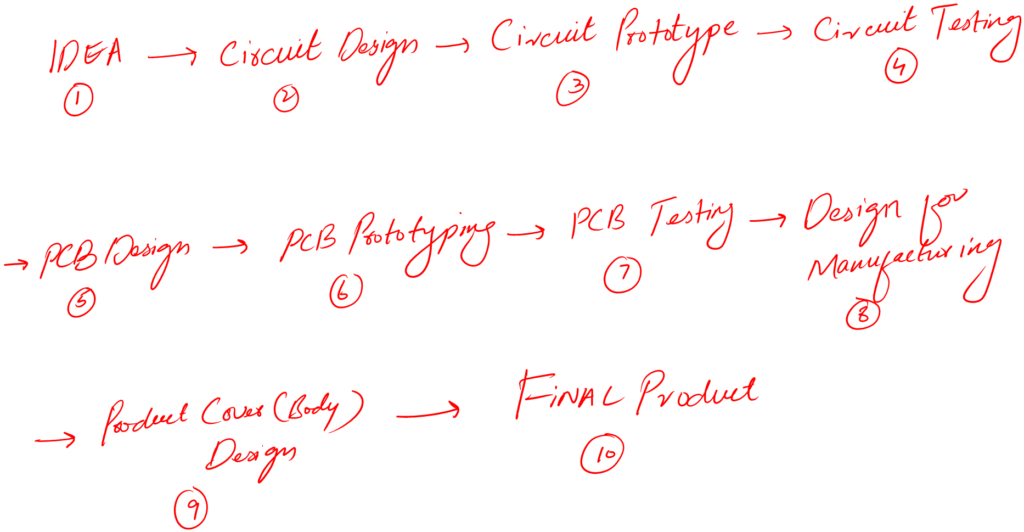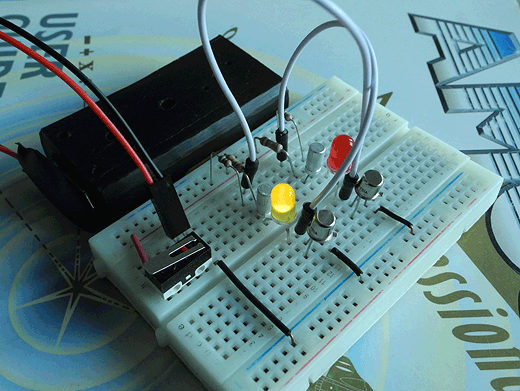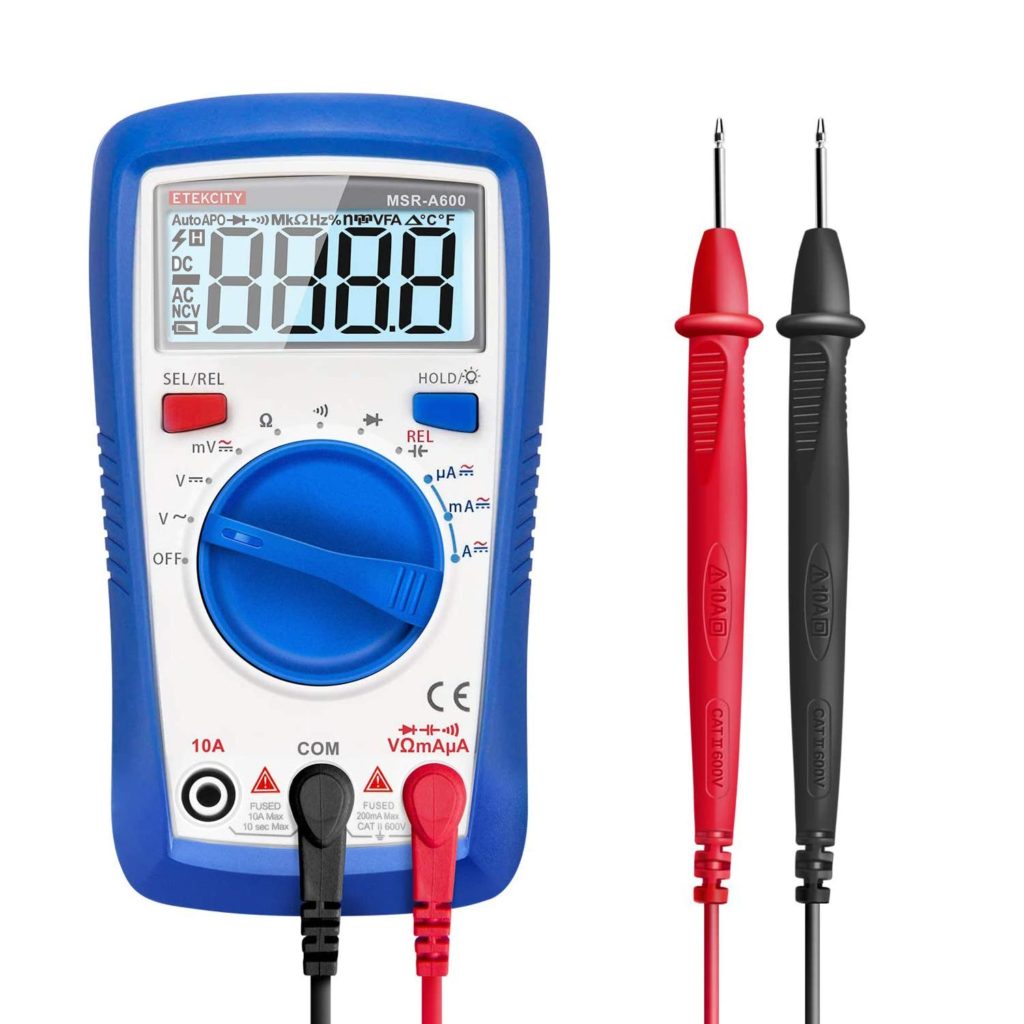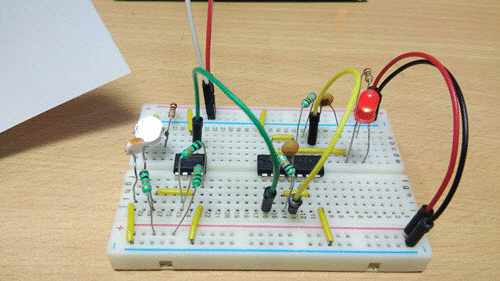Previously we learned:
Now, let’s try to answer the most confusing question: Can I learn electronics on my own?
For various (unknown) reasons, people perceive electronics as a very difficult and challenging field to study. Maybe because of this beginners ask this question a lot.
So,
The answer is: Definitely Yes. We are living in a world where you can learn anything as long as you have access to the internet, and you really want to learn from the heart. It is doable. And you don’t need to be extremely intelligent to learn it.
Electronics is an interesting and easy subject to get started with. Of course, it will take dedication and time to master it. But let me assure you the more time you will give it the more likely you will develop a deep interest in it.
Let’s get into the details and see how you can strategically learn electronics on your own.
Can I learn electronics on my own?
I believe that we as humans can do anything as long we have the willpower to do so. This willpower is an extremely useful asset given by the Almighty God to us.
And I am not sure, but I think because of this willpower we will be answering to God on the day of judgment like where we used our willpower and for what purpose.
So, if you ask me in person – Can I learn electronics on my own? My answer would be simply, do you have the willpower to do so? If yes then most definitely and absolutely.
Now that we agree that you can. Let’s see a bigger picture of electronics and how you can choose a subfield of electronics that excites you the most.
This picture might be overwhelming at first. I am warring you for that. But that is OK. Almost everything at the beginning seems overwhelming and scary.
Big picture
I want you to be aware of the electronics subfields because: Look there is so much you can do with electronics. And I can’t say for sure in general what will excite you.
The best strategy is to look upon these fields and the stuff you can learn and practice. Try a bunch of these, and you will most probably find the one you enjoy spending time learning.
Let’s talk about the whole process of how an electronic product goes from the idea to the final thing that you can use.

You see there are a lot of stages. Each stage requires its expert. So, you can be:
- Electronics circuit designer
- Electronics circuit prototype expert
- PCB Designer
- Manufacturers Designer
- Electronics product testing expert
Don’t worry about the terms if you don’t understand them. Focus on my point. The point is, first you need to know what you like doing. Next is to practice it until you become an expert – it is that simple.
Basically, what we saw above was the example of CONSUMER ELECTRONICS.
Electronics doesn’t end here. We have the following other areas as well:
- Robotics and intelligent machines (Artificial Intelligence)
- Power Electronics
- Analog electronics
- Digital Electronics
- Instrumentation and industrial electronics
- Internet of Things (IoT)
- Embedded electronics
Now you should know that electronics is a vast field and there are many subfields in it. All the fields have their own application, milestones, and learning process.
Something common in all of them is that they all are future promising fields. If you decide to master one of them I can assure you, that you will have a great career ahead of you.
And I don’t know …
Why I am assuming that you all are reading this post to get a career in electronics – you might be a hobbyist or want to learn electronics for fun or whatever reason.
I am not sure of that, but I am sure of one thing and that is: I know you are a beginner. That’s why I shared the above big and broad picture in a very simple way.
Now the question is: How can I learn electronics on my own?
Am I right?
The Goal
A beginner should understand that the end goal of learning electronics is to: make useful circuits. These circuits can be for fun and can be for commercial products like laptops, mobile, etc.
Making circuits the foundation of electronics and any subfield of electronics. I believe if a beginner starts focusing on only this part, the rest of the learning process will not be that hard.
What is a circuit?
A circuit is basically a combination of various electronic components connected together in a specific way. Following is an example of a beginner circuit:

Isn’t that cool?
The goal is to be able to understand the basics of such circuits and learn to make such circuits yourself.
Learning electronics on your own
Now that you have some idea about electronics and its subfields. I think it would be helpful to share how you can start learning electronics on your own.
There are so many ways you can learn electronics. But with my experience, I believe it is best to start with learning the basics first. Then start making circuits and make mistakes. Learn from the mistakes and repeat making new circuits until you feel confident.
Following are some strategic steps one can follow to effectively learn electronics very fast.
Step 1: Learn the basics
The first step is to learn the basics of electronics. These basics are common to all the subfields of electronics. Take as much time as you can to deeply understand the basics. If you skip this part the rest of the learning journey wouldn’t be that effective.
To start learning the basics, I would suggest enrolling in a basic electronics course online. This will help you a lot. There are so many courses out there on Udemy, Coursera, and Edx. Just go there search for electronics basics and find the course that you think resonates with you.
Most of these courses are free, so explore the courses and choose the one that you think you can finish and enjoy. Also, Yaman Electronics is a free source of learning electronics as well. You should explore our website for more content and see if you like our teaching style.
In the basics, you will learn about the definition of electronics, circuit terminologies, and the fundamental terms of electronics like voltage, current, and power.
After basics, the next step is to learn about the electronic components.
Step 2: Electronic components
The next strategic step is to learn about the fundamental components of electronics. These components when combined together make circuits.
The following are some components:
- Resistor
- Capacitors
- Diodes
- Transistors
- LEDs
- Inductors

In this step, you will be introduced to circuit symbols of various components, definitions, and functions. You will learn why we use these components and where we should use them.
Step 3: Measurements
In the previous step, you learn about voltage, current, resistance, and various fundamental components.
To properly select the values of voltages, current, and electronics we need to measure them.
That’s why ..
The next very important thing is to learn how to use various electronic measurements and measuring devices.

These devices are crucial as you will need them for the rest of your electronics journey. Following are the few fundamental tools and devices that you must master:
- Multimeter
- Breadboard
- Oscilloscope
- Power supply
Think of them as the basic tools for your lab. A lab is a place where we make circuit boards, repair them, and do our electronics experiments.
Step 4: Practice prototyping
Now you have your basic lab and basic understanding of electronics. It is time to practice. Because without practice theory is not enough. And electronics without building projects is not that fun, in my opinion.

So invest in various DIY small projects. And see your progress. When you think you can go for advanced prototypes please go for them. You will make a lot of mistakes but trust me these mistakes will help you level up.
Step 5: Troubleshooting
When you make circuits, you will make mistakes for sure. To rectify those mistakes we troubleshoot the circuit.
Step 6: Working on your own projects from scratch
After spending time on prototyping and making already designed projects. It is the time to start thinking in electronics and work on your own ideas from scratch.
Start from small projects and then slowly go for advanced concepts. I would recommend taking on some projects on Coursera. This will give you a taste of guided projects.
Now, working on a project from scratch can be difficult at the idea stage. You will find it hard to think of an idea to work on. But once you pass this phase the rest will not be that hard.
Step 7: Repeat
The key to mastering any skill is repetition. You work on one project and complete it, now it’s time to start working on another one.
Conclusion
So you asked, Can I learn electronics on my own? The simple answer to this question is yes. The only condition is you must have the willpower to do so.
I think the right question, is how you can learn electronics. Because if you have the willpower nothing should stop you from learning electronics. To learn electronics you first know what you can master in electronics as electronics is a vast field.
There are so many branches of electronics to look for. But rest assured no matter what field you choose it is guaranteed you will have a successful career in it if that is what you want.
Following are the key steps to get started with electronics:
- Understanding Electronics & its Definition
- Having a look at Electronics Sub-Fields
- Knowing the Fundamental Terms of Electronics
- Fundamental Electronics Components
- Putting Components Together – Introduction to Circuits
- Fundamental Lab Measurements Tools & Devices
- Ready to Go from Product Idea to Final Manufacturing
So that is it. That is all I have for you to share. I hope you enjoyed it.
Thank you and have a grateful life.
Next to learn:
Other useful posts
- Basic electronics for beginners
- Best electronics tools & equipment for beginners
- Learn electronic circuits for beginners
